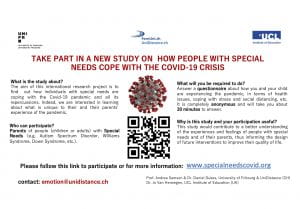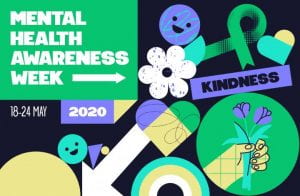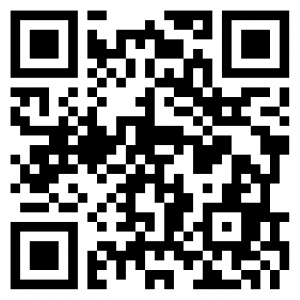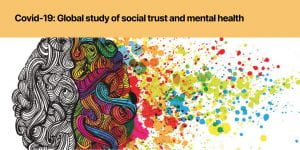
This study aims to find out:
- How are individuals with special needs coping with the pandemic?
- What is unique about their experiences and the experiences of their parents?
Parents of individuals with special needs (e.g., autism spectrum disorder, Williams Syndrome, Down Syndrome, etc.) are warmly invited to participate. The study would involve filling out an anonymous 30-minute questionnaire about coping with the pandemic in terms of health, issues, stress, social distancing etc.
This study aims to contribute to a better understanding of the experiences and feelings of people with special needs and their parents, thus informing the design of future interventions to improve their quality of life.
For more information, check out the website and get in touch with Dr. Jo Van Herwegen (j.vanherwegen@ucl.ac.uk).








